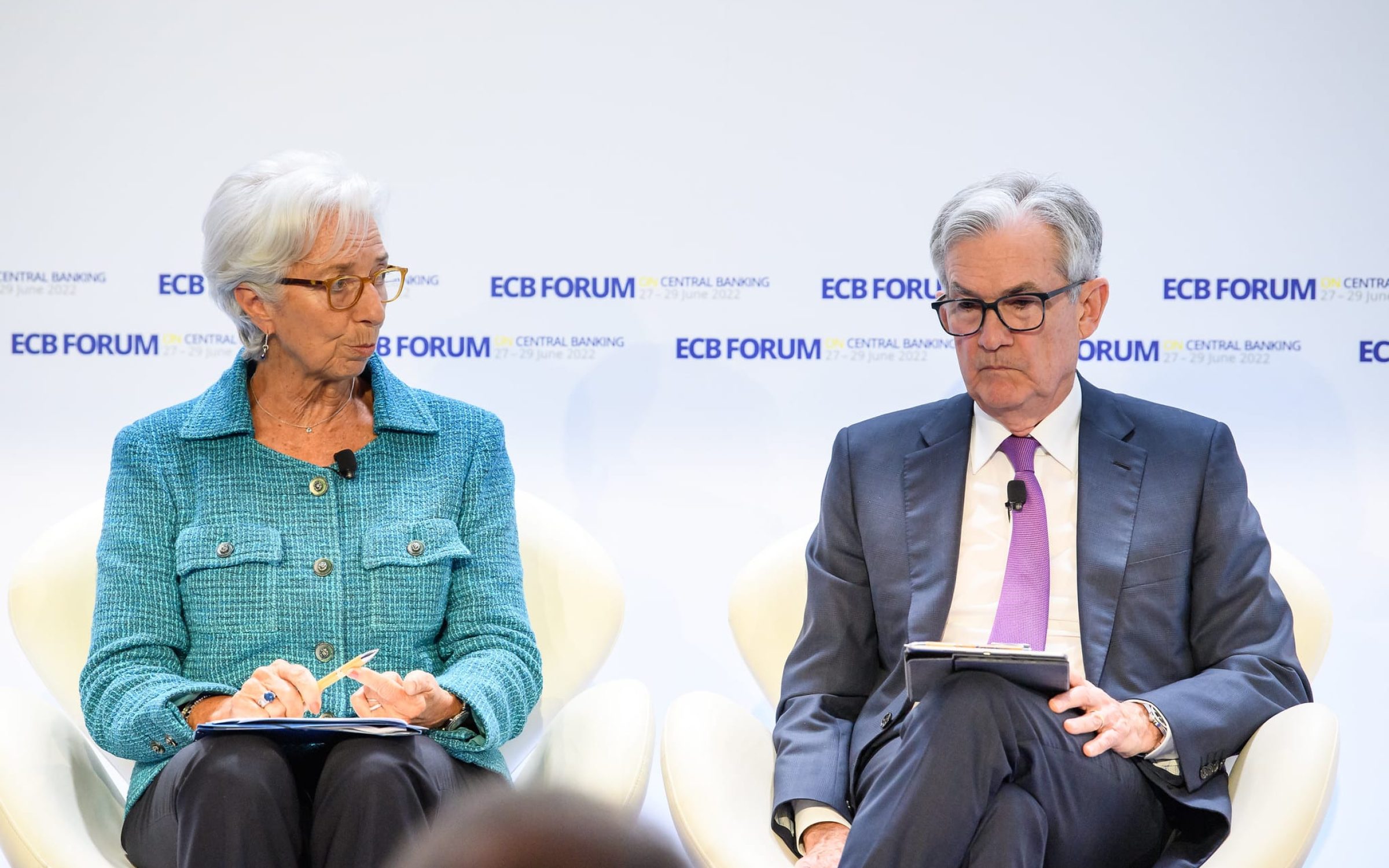I’m not quite sure why it is but my ageing and creaking iPad has retained in one of its memories an article I wrote for the International Financing Review in the aftermath of the 2016 US Presidential elections in which Donald Trump had, to much of the United States and certainly to all of Europe’s disgust, triumphed and to which the sub-editor had attached the title “Politics is the New Economics”. I recently tripped over it and reread it. The title was better than the piece although it is again a subject that sits centre stage. That other great bon mot springs to mind that, if you don’t know where you’re going, you don’t know when you’re lost.
The ECB’s answer to the Fed’s Jackson Hole symposium in Sintra in Portugal is now in full swing and, yesterday, Fed Chairman Jay Powell gave those assembled – and in extension all of us – an update on his view of life, the universe and everything. Anyone for tennis?
Yes, we know that the Fed along with its friends and relations is carefully “watching the data” which is all heading in the right direction for one or maybe even two rate cuts before the end of 2024. Or maybe none? Of course they’re watching the ruddy data. What else would they be watching? A long time ago, I decided that when central banks tell us that they are “watching the data”, it means that they have no particular idea what to do next and when. It’s a bit like a general without a battle plan who reckons he’ll lob a shell over the horizon and wait to see what happens. Even central banks’ monetary policy needs a strategy and, in my humble opinion, targeting 2 per cent inflation to the apparent exclusion of everything else is not one.
That said, I do have sympathy with Jay Powell, Christine Lagarde, and their merry band of colleagues on their respective monetary policy committees. The political backdrop is dreadful and not looking as though it will in the foreseeable future become any better. The media are currently overtaken by speculation, above all with respect to the second round of the French parliamentary elections that follows on Sunday. How will the centre and the left coalesce in order to block Marine le Pen and her Rassemblement National? On Monday, I received an interesting email from one of my more regular and more thoughtful correspondents who has an interesting angle. He wrote:
“Le Pen might be happy to be defeated by a coalition of the centrists and far left now as in doing so that coalition may become so tainted by failure and elitism that Le Pen will triumph in the Presidential vote in 2027[?]. Whatever the vote now, I doubt the Fifth Republic will see 2030 (since 1789, France would seem to have had 2 kingdoms, a Directorate, a Consulship, 3 Empires and 5 Republics – so they are long overdue something different!). It seems that it will be a close-run thing as to whether the Fifth Republic or the Great Republic fall first to populism. How long before Germany follows? Its core of manufacturing must be at risk and the chickens of underinvestment, immigration, and dependence on Russia in Merkel’s decade of inaction would seem to be coming home to roost and to fracture the German body politic”.
My only major contention with his thinking was that I can identify two empires – one under Nap I and the other under Nap III, but I can’t think of a third one.
The holiest of holy cows in this country remains the NHS and MPs seeking re-election and those aiming to unseat them who in interviews insist on talking about what voters’ concerns are when they talk to them “on the doorstep” always come back to the failing health service. I was listening to a programme on the radio driving back from London yesterday in which the talk was about how many medical appointments are missed without cancellation. Patients, or more accurately putative patients, simply don’t turn up. The figure is apparently 6 per cent of all appointments or 750,000 per month which go to waste. That is not money wasted by politicians or health service administrators. That is money wasted in prodigious quantities by the very people who are so loudly complaining about the poor standard of health care. If the appointments are with the GP, then the cost per miss can be priced at say £50-70. If, however, it is with a specialist and treatments have been prepared the cost shoots up. Any medication that has been brought out cannot be returned and needs to be disposed of. Reducing the number of missed appointments would in all likelihood more than adequately make up for the perceived shortage of doctors.
I have taken a little bit of time to try to get my head around some of the key financials of the National Health Service. This is not a game of 3D chess but one of 4D or even 5D. The current health budget is around £ 171 billion. With a population of 67 million, that translates into just north of £2,500 for every man, woman, and child in the country. Currently, the UK’s total tax receipts that include not only income tax and VAT but the whole shebang, is £1.1 trillion which represents 31 per cent of GDP.
It’s not easy to find up-to-date tables which compare tax takes as a percentage of GDP although what is there, even after recent adjustments, shows the UK as a relatively low tax country with the tax burden across the economy the better part of 10 per cent lower than that of France which is consistently above 45 per cent. One might say that the UK voter wishes for the French health service with US taxation and has somehow ended up with the US health service and French taxation. That might not be quite true although by all accounts and despite its glowing reputation the shortage of basic medical care in rural France is significantly more acute than it is in this country.
Well, today is Wednesday. The UK votes tomorrow and France on Sunday. We shall have to wait and see. We know who will be forming the next government in the UK with the only question being how big the parliamentary supermajority will be. In France, we at this point only know who won’t. Either way, the respective incoming administration will be faced with a fiscal Gordian knot and, will, in short order, almost certainly be suffering from deep unpopularity.
Write to us with your comments to be considered for publication at letters@reaction.life





